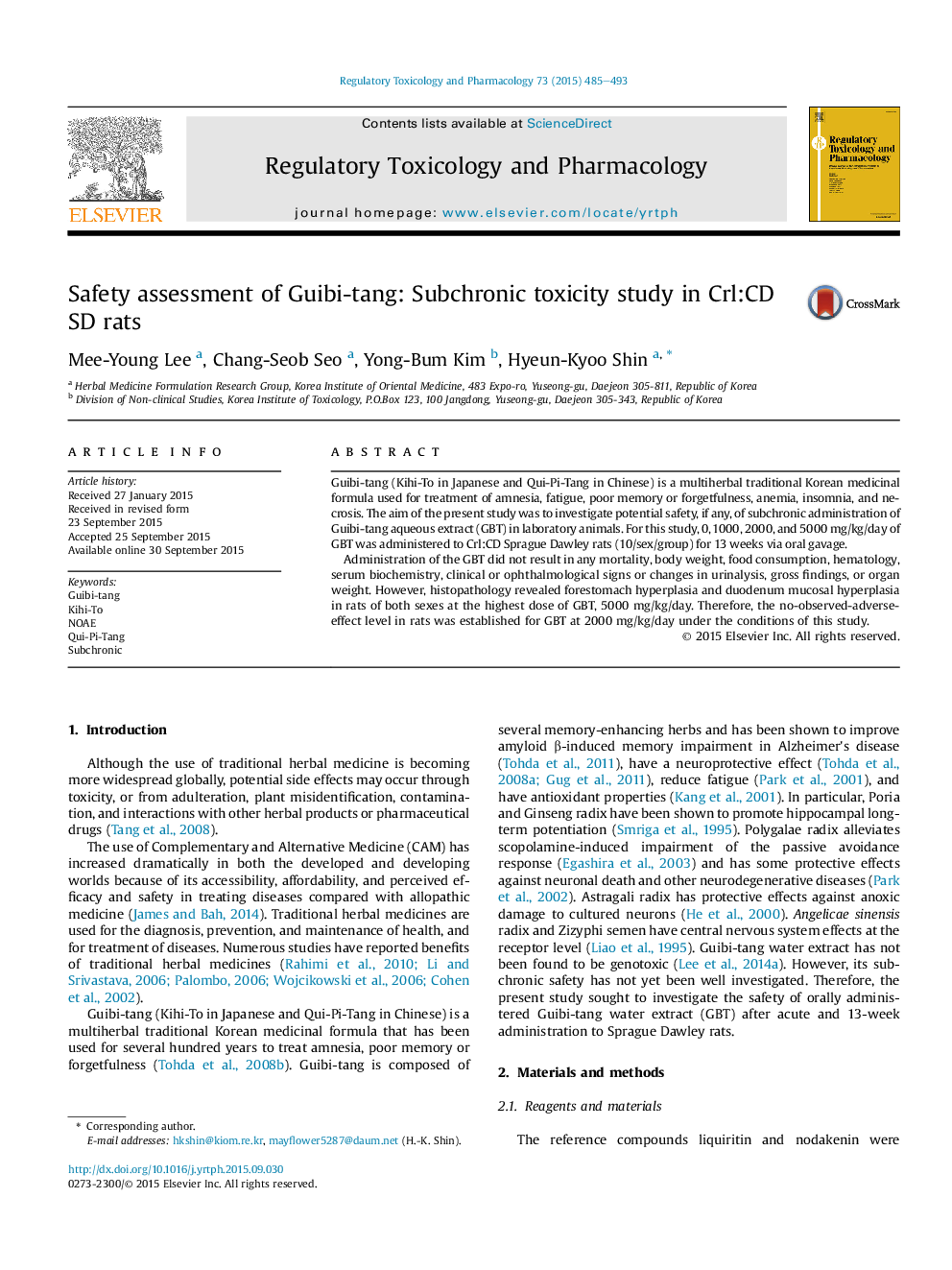| Article ID | Journal | Published Year | Pages | File Type |
|---|---|---|---|---|
| 5856144 | Regulatory Toxicology and Pharmacology | 2015 | 9 Pages |
â¢Sub-chronic toxicity of GBT was assessed.â¢GBT did not results in any mortality.â¢GBT alter forestomach and duodenum mucosal hyperplasia.â¢The no-observed-adverse-effect level of GBT was 2000 mg/kg/day for both sexes.
Guibi-tang (Kihi-To in Japanese and Qui-Pi-Tang in Chinese) is a multiherbal traditional Korean medicinal formula used for treatment of amnesia, fatigue, poor memory or forgetfulness, anemia, insomnia, and necrosis. The aim of the present study was to investigate potential safety, if any, of subchronic administration of Guibi-tang aqueous extract (GBT) in laboratory animals. For this study, 0, 1000, 2000, and 5000Â mg/kg/day of GBT was administered to Crl:CD Sprague Dawley rats (10/sex/group) for 13 weeks via oral gavage.Administration of the GBT did not result in any mortality, body weight, food consumption, hematology, serum biochemistry, clinical or ophthalmological signs or changes in urinalysis, gross findings, or organ weight. However, histopathology revealed forestomach hyperplasia and duodenum mucosal hyperplasia in rats of both sexes at the highest dose of GBT, 5000Â mg/kg/day. Therefore, the no-observed-adverse-effect level in rats was established for GBT at 2000Â mg/kg/day under the conditions of this study.
Graphical abstractDownload full-size image
